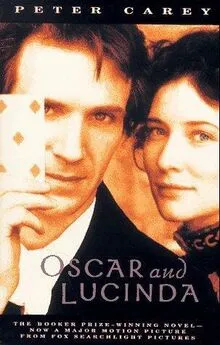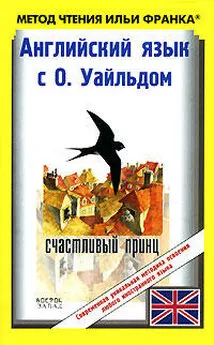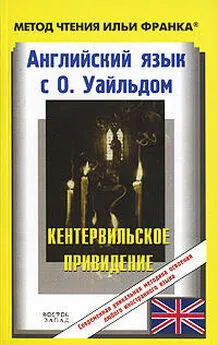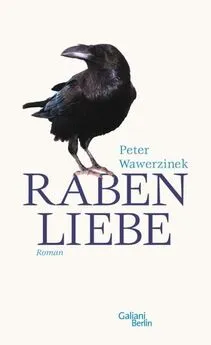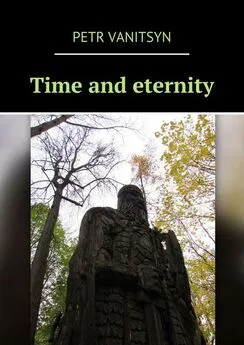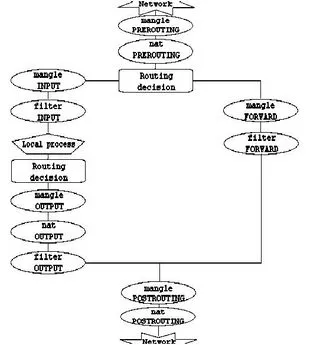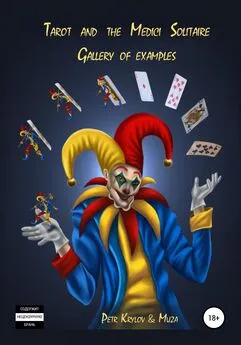Peter Carey - Oscar and Lucinda
- Название:Oscar and Lucinda
- Автор:
- Жанр:
- Издательство:Vintage Books
- Год:1988
- Город:New York
- ISBN:0-679-77750-4
- Рейтинг:
- Избранное:Добавить в избранное
-
Отзывы:
-
Ваша оценка:
Peter Carey - Oscar and Lucinda краткое содержание
The Booker Prize-winning novel-now a major motion picture from Fox Searchlight Pictures.
This sweeping, irrepressibly inventive novel, is a romance, but a romance of the sort that could only take place in nineteenth-century Australia. For only on that sprawling continent-a haven for misfits of both the animal and human kingdoms-could a nervous Anglican minister who gambles on the instructions of the Divine become allied with a teenaged heiress who buys a glassworks to help liberate her sex. And only the prodigious imagination of Peter Carey could implicate Oscar and Lucinda in a narrative of love and commerce, religion and colonialism, that culminates in a half-mad expedition to transport a glass church across the Outback.
Oscar and Lucinda - читать онлайн бесплатно полную версию (весь текст целиком)
Интервал:
Закладка:
A Degree from Oxford
Mr d'Abbs really wanted to be flattered. He prided himself on his employees as he prided himself on the paintings and lithographs that crowded his walls at home. He was an artist himself. He liked artists. He was a philosopher. He liked philosophers. He provided them, in the midst of commerce, with a refuge.
He could not tell anyone, not even his wife, what pleasure it gave him to know that now, at this instant, in the clerk's room next door, he had Mr Jeffris the poet and surveyor, Mr Trevis-Dawes the pianist, Mr Coyle the water-colourist whose views of Pittwater and the Hawkesbury adorned the cedar panels of his office. He did not wish to talk to them, and he certainly did not socialize with them. But he was very pleased, more pleased about this than anything, that they were there.
"So why come to me?"
"Oh, Mr d'Abbs," said Lucinda, "do not tease me." 'Tease?" said Mr d'Abbs, looking pleased. He relit his cigar and sent clouds of smoke into the air. "You told me yourself about your Mr Cloverdale." "Speaks Hindi, that's correct. It is absolutely no use to him in Sydney. But he is an honest man, Miss Leplastrier, and neat."
Lucinda assured him of Oscar's character. She said nothing of gambling. (She should say. She would not.) Mr d'Abbs was now explaining that money was kept in the office. He stood, took out a big bunch of noisy keys from his pocket, and opened the safe with one of them. He showed her money. There was ten thousand pounds in his safe. He showed her the money to stress the importance of honesty, but the other reason, the real reason, was that he could not believe it was him, little Jimmy Dabbs, Ditcher Dabbs's boy, who was standing in his own office in the colony of New South Wales, a cigar in one hand, ten thousand pounds in the other. "Fancy that," he said.
The things that moved Mr d'Abbs were clear to Lucinda. Sh was embarrassed for him, not that he should be so pleased about himself, but that he should reveal his pleasure so clearly, that he should stand naked at his bathroom window, not knowing he had an audience for all his imperfections.
"He knows Latin," she said, "and Greek." Mr d'Abbs looked up at her and blinked. He smiled and tapped a wad of banknotes against the back of his wrist.
"He has excellent references from his London employer. He was a schoolteacher." She spoke quickly, leaning forward, listing his achievements until she had said Greek three times and Latin twice. She spoke
7R7
Oscar and Lucinda
on and on, not because she wished to exaggerate Oscar Hopkins's attainments, but in order that she be too busy to notice the private reverence Mr d'Abbs showed the wad of currency-the one bright colour in this room of sombre water-colours.
Lucinda held her hands together. It gave her the appearance of "imploring." Her little shoulders were uncharacteristically rounded and Mr d'Abbs, without knowing quite what had triggered it, felt a stirring of the loins.
Others found Miss Leplastrier attractive. Absalom had taken a fancy to her. Old Gerald MacKay had dubbed her the "Pocket Venus" and sworn he would have her for wife. But Mr d'Abbs, if you discount that unfortunate occasion when he had placed his hand on her knee, had forgotten how to see her in this light. Their friendship at the card table had continued, but in business he found her the complete shrew. When she had returned from England she had thumped his desk with her little fist.
But today he found her very "girlish." He could imagine this young Hopkins being smitten with her. She had a soft white neck.
He tossed the banknotes into the safe-thwack, ding, money's nothing to me-and locked its door with a heavy brass key. He returned to his new squeaky leather chair to hear how she would manage to tell the story of her involvement with this defrocked priest whom she now sought to recommend to him.
Well, she could not tell it, of course. She might slam her fist on his desk or drink Scotch whisky from a crystal tumbler, but she could not tell him about this one face to face. Jimmy d'Abbs knew the story. Of course he did. He was not a member of Tattersall's, the Masons and the Sydney Club for nothing. He smiled and nodded encouragement, but she told him nothing, and there was no hint, no rumpling of her white starched collar to suggest the amours he imagined her conducting with the priest in the tangled privacy of her bed. Lucinda found it hard to look Mr d'Abbs in the eye. She felt her cheeks colouring but could not stop them. She told Oscar's story without mentioning cards or horses. Mr d'Abbs noted the omission but was unconcerned. One could gamble and be honest. He gambled. He played most games a gentleman would play.
He asked her would she be so kind as to have Mr Hopkins supply a sample of his handwriting.
"What shall I have him write?"
"Some Latin," he said, "a little arithmetic." He placed the
Heads or Tails cigar in the ashtray so it might go out. "Some Greek." ••«*• •>": f'j
"Greek?"
Don't frown at me, young lady. "Greek," he said. He would like the Greek as he had once liked Mr Jeffris's trigonometry. What other accountant would demand a sample of your trigonometry?
The thought of Mr Jeffris-who was his head clerk these days-made him uneasy. Mr Jeffris did not like him to employ new clerks without consultation. This was fair. They had agreed on it. But was it not Mr d'Abbs's own practice? Was not that his own name on the door? Did he not have the right to employ whomever he liked without there being doors slammed and ultimatums issued?
"There is no hurry," he told Lucinda.
But when she arrived at Longnose Point that night, she brought a present with her. It was wrapped in maroon tissue paper from a Pitt Street stationer's-ink, a new nib, and three loose sheets of ledger paper.
75
Heads or Tails
Lucinda had painted a picture of Mr d'Abbs. She had made him a shy creature, a dormouse with a waistcoat and a gold chain. Oscar had imagined a small pink nose all aquiver, seen his hands go to his face as he attended to his nervous toilet. He had gone to the meeting full of tenderness for Mr d'Abbs, not merely for his timidity, but for his Christian charity, that he should risk his own business name by employing a man in such public disgrace. But when he came, at last, to sit in Mr d'Abbs's office, he found that Mr d'Abbs was not a shy man at all, or if he was, his shyness was of a highly selective quality, was sensitive to distinctions of sex, perhaps, and rank, certainly, just as the Chinese are so attuned to the pitch of the human voice that one can ask directions to
Oscar and Lucinda
Li-Po, for instance, and not be understood until one's pitch is perfect. It was the eleventh day of October and early in the afternoon. Rain drove against Mr d'Abbs's window and although the Venetian blinds were fully hoisted the sky was so dark and bruised that it was necessary to light a lamp. The office looked across at the windows of other offices in which there were also lamps lit. Oscar listened to the thunder and imagined he would soon have his shirt sodden and clinging to his skin.
"You have no hand," said Mr d'Abbs. "You have no hand that would be worth a damn to anyone."
Oscar sat on the edge of his chair. He was aware of the spots on his trousers. His attempts at cleaning them had made them worse. They were dark spots ringed with watermarks. He felt them to be visible badges of his disgrace. And although he had warned himself about the dangers of fidgeting, when Mr d'Abbs peered bad-temperedly across the desk, Oscar could not stop himself from rubbing at his trousers with the back of his thumbnail.
He put his head on one side and looked at Mr d'Abbs.
Mr d'Abbs was accustomed to unconventional men. Indeed he collected them-artists, poets, philosophers-it was the great pride of his life that he could provide them, in the midst of commerce, with a refuge.
But this was not an artist. This was a clergyman. He had expected someone at once broader and tidier. He had not expected "artistic" qualities in a sacked clergyman. This was a very queer chap, and Mr d'Abbs gazed at him quite openly, astonished to think that it was this uncombed stick-limbed fellow, this grasshopper, who had finally cracked the defences of she whom Gerald MacKay had dubbed "our pocket Venus."
White hailstones danced on the window ledge. There was a wild whinny from a panicked horse in the laneway below. Mr d'Abbs stretched his legs under the desk, crossed his thin white ankles, and wished he had never been so rash as to promise anything to Miss Lucinda Leplastrier. The priest's sample penmanship was still uncrumpling-he could hear it now-in the wastepaper basket beside his chair.
"I have seen some bad hands," said Mr d'Abbs.
"Indeed," said Oscar, crossing his ankle over his knee, then realizing that it showed his stocking and that, in any case, it was not the correct pose for an employee, he put his foot squarely on the floor. "Indeed, I would imagine you had."
Heads or Tails
"Well, before all this," said Mr d'Abbs, waving his hand grandly although there was not a great deal in the office to wave grandly at. "My own brother, now there's a fellow." And Mr d'Abbs saw, with his mind's eye, what Oscar could not even guess, a boy with his arms all itchy from those tiny red mites that were known as "harvesters" they came at harvest time and dug deep into the skin. They were a great discomfort. They were worse than thistles bound up in the oat sheaves.
"He was left-handed, like yourself," said Mr d'Abbs, recreating his brother contorted around his pen. "But they changed him over, you see. He was perhaps a little.old when they tried, for although my mater was a determined woman, it never really took. It mattered not so greatly to my brother, but for you, sir, in your previous profession. ." Oscar blushed bright and painful red at the memory of his "profession." He had thought it a secret in this context. Now he bowed his head under the weight of the shame. "Yes," he said, making himself look Mr d'Abbs in the eye, "it is a great inconvenience." Mr d'Abbs named this look a "glare." He thought it quite alarming. Oscar smiled.
Mr d'Abbs found a cigar in his drawer. It was crumbly, decidedly crumbly. He brought it out anyway and placed it on the blotter. "An inconvenience, sir. Indeed, a great inconvenience. I knew a parson in Basingstoke who was left-handed and could never hold a living, for once they saw him hold the sacrament in his left hand, they would not have him, and they would be off to the bishop, clipclop, and back again with a new chap."
Oscar saw Mr Judd riding off down the road, Mrs Judd behind on a big-bellied sway-back. Clipclop.
"Ah, now you smile, you see, but I warrant you never had a living in the English countryside." "I never did."
"I know you never did, sir. You would not have smiled had you done so. I met a witch in Mousehole, in Cornwall. She shook hands with me as though she were a man. You could not be a left-handed parson in those parts. You know your Latin? Sinister?" "Sinister, sinistu, sinistu, sinistrum, sinistris." "Sinistartorium, said Mr D'Abbs. He got his left hand into his drawer. He found the cigar clipper. "The ablative?" Mr d'Abbs did not answer, but he looked up, he appeared most
Читать дальшеИнтервал:
Закладка:
